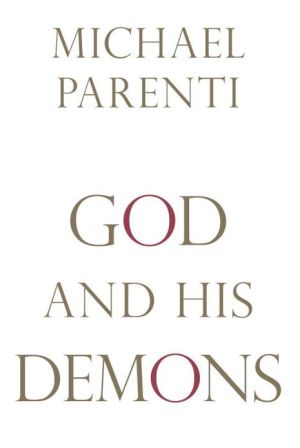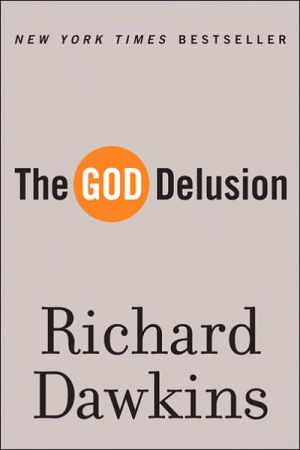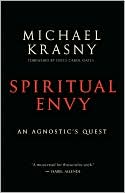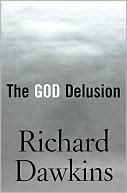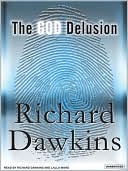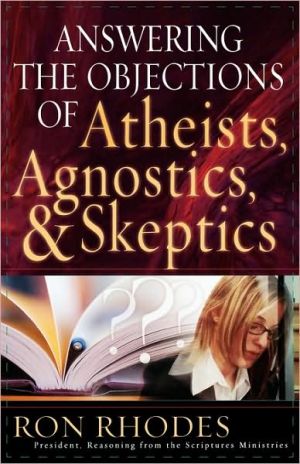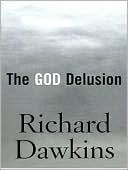God and His Demons
A noted author and activist brings his critical acumen and rhetorical skills to bear on the dark side of religion, from the many evils committed in the name of "holy causes" throughout history to the vast hypocrisies of its unworthy advocates past and present. Unlike some recent popular works by stridently outspoken atheists, this is not a blanket condemnation of all believers. Rather the author's focus is the heartless exploitation of faithful followers by those in power, as well as...
Search in google:
"It's not God I have a problem with; it's his fan club."-AnonymousNoted author and activist Michael Parenti brings his critical acumen and rhetorical skills to bear on the dark side of religion, from the many evils committed in the name of "holy causes" throughout history to the vast hypocrisies of its unworthy advocates past and present. Unlike some recent popular works by stridently outspoken atheists, this is not a blanket condemnation of all believers. Rather Parenti's focus is the heartless exploitation of faithful followers by those in power, as well as sectarian intolerance, the violence against heretics and nonbelievers, and the reactionary political and economic collusion that has often prevailed between the upper echelons of church and state. Parenti delves into a wide and fascinating range of subjects: • The harsh narratives of the Old and New Testaments, from the appalling accounts of violence, draconian justice, and moral turpitude in the older books of the Bible to the latent anti-Semitism in the New Testament.• Creationism and intelligent design in both its laughably crude and sophisticated forms.• The duplicities of gurus. Even such icons as Pope John Paul II, Mother Teresa, various US televangelists, the Dalai Lama, and Jesus himself are subjected to a revealing scrutiny.• The hypocrisies of "family-values" religionists and politicos-the sexual predation and cover-up committed under the cloak of religion as well as their financial schemes and frauds.• The totalitarian theocratic goals of Christian and Islamic extremists, and the Shangri-La myths about feudal Tibet.Parenti notes thedeleterious effects of past theocracies and the threat to our freedoms posed by present-day fundamentalists and theocratic reactionaries. He discusses how socially conscious and egalitarian minded liberal religionists have often been isolated and marginalized by their more conservative (and better financed) coreligionists. Finally, he documents the growing strength of secular freethinkers who are doing battle against the intolerant theocratic usurpers in public life.Historically anchored yet sharply focused on the contemporary scene, this eloquent indictment of religion's dangers will be welcomed by committed secular laypersons and progressive religionists alike. Publishers Weekly Anyone looking for a catalogue of religion’s darkest moments will find it in this angry volume by the Berkeley-based cultural critic and activist. A New Atheist in the mold of Christopher Hitchens, Sam Harris, and Richard Dawkins, Parenti spares no adjectives in describing the evils of religion, be it creationism or televangelists. He claims he does not want to destroy other people’s beliefs and that his book is not addressed to religious progressives, whom he finds tolerable. But he writes about religion, whether Christianity or Islam, with unconcealed scorn and derision. Parenti makes no clear argument, nor does his polemic offer an introduction or conclusion. Instead it might be understood as a call to arms against what he calls “religionists” the world over. He complains that “progressive dissidents usually are denied access to mass media audiences,” a charge that might confound his publisher and the industry that has made leading New Atheists household names. His condescending tirade is directed not so much at religion as at human beings whom—one gets the impression—he can barely suffer. (Mar.)
GOD AND HIS DEMONS\ \ By MICHAEL PARENTI \ Prometheus Books\ Copyright © 2010 Michael Parenti\ All right reserved.\ ISBN: 978-1-61614-177-6 \ \ \ Chapter One\ UP FROM HEAVEN I do not feel obliged to believe that the same God who endowed us with sense, reason, and intellect has intended us to forgo their use. -Galileo Galilei \ Since time immemorial, human beings have sought relief from the slings and arrows of outrageous fortune and the brutish uncertainties of a seemingly indifferent universe. Keenly aware of their vulnerability to infirmity and natural catastrophe, and often heartlessly victimized by other humans, they have beseeched their gods to bring them respite and wreak vengeance upon their enemies.\ Even those who live with some measure of comfort and security face an inevitable mortality. Regardless of how they strive on earth, whatever the monuments they build to themselves, their ultimate fate on this planet is eternal nonexistence-an anticipation that is neigh impossible for many to countenance. So they choose to anticipate perpetual reincarnation into this world, or they fashion gods who will usher them into la vita eterna, an endless celestial bliss of a kind so sorely wanting in our terrestrial existence.\ Along with the fear of death is the fear of life. To modern dwellers as well as primitives, the world is beset by unpredictable forces that are stronger than we. Many such forces are perceived as the willful expression of gods (or a single god) who need to be propitiated and enlisted in our cause.\ This does not mean that all religious experience is but a compensation for human travail. There are other reasons people have looked to the heavens. Our intelligence invites us to ponder the nature of cosmic existence, to be awed by the miracle of life itself and the boundless wonders of the universe. On questions of cosmology, physics begins to sound like metaphysics, as mysteries are confronted that once were the exclusive province of religion. Did the universe have a beginning? Where did it come from? What is its ultimate fate? How are we attached to it? Is there some purpose or intent?\ The greatest of physicists, Albert Einstein, was one of those who pondered these imponderables: "Try and penetrate with our limited means the secret of nature," he said, "and you will find that, behind all the discernible laws and connections, there remains something subtle, intangible and inexplicable. Veneration for this force beyond anything that we can comprehend is my religion." Another great physicist, Stephen Hawking, resorts to a theological idiom to express a scientific effort. His book on landmark mathematical achievement is titled God Created the Integers.\ Perhaps the great German philosopher Georg Wilhelm Friedrich Hegel was right. In the beginning there was the world spirit, the Weltgeist, moving in unconscious creation, bringing forth cosmic energy that eventually objectified itself in the form of matter. From matter there evolved conscious matter in the form of life, and from conscious life came self-consciousness-the ability of consciousness to reflect upon its own nature in highly complex abstracted form-which, as far as we know, is a distinct property of human beings. What a remarkable thing the universe is that it would engage in this process of self-realizing (in both senses of the word) its own existence, a universe that creates a part of itself to study the rest of itself. As Hegel said, "It is in the nature of the Geist [spirit] to have itself as its object."\ To most philosophical materialists, questions about the existence of a spiritual realm are valueless, part of the unanswerable mysteries of existence. To religious believers they are self-evident: the mysteries are themselves manifestations of their deity's wonders. Human beings have fashioned numerous gods and goddesses over the centuries, many of whom have slipped into oblivion along with the societies that produced them.\ In Western theism two basic traditions prevail. There is the god of rational totality, immutable and cosmic, impersonal and without deliberate demands, a pure creative force with an evolving design: Hegel's "self-manifesting" spirit. Then there is the Judeo-Christian god, "the Lord our God," also known as Yahweh or Jehovah, and other personalized godheads who act directly and anthropomorphically upon history with moods of love, jealousy, favoritism, and judgmental rage.\ In our culture it is the latter type of god who seems to have the widest following by far, bolstered by regiments of conservative fundamentalists who conjure up images of Him (never Her or It) as the Almighty Patriarch and Protector, Winner of Wars, Punisher of Impiety, and Divine Dispenser of Rewards to those who adore him. It is this god and his intolerant, furiously proselytizing, and often corrupt and evil adherents who are the object of my critical attention in the pages ahead (which is not to say that all believers are corrupt and evil).\ IN SEARCH OF SACRED SECULARISM\ This book is not the work of a militant atheist bent on divesting the faithful of their sometimes comforting and sometimes terrifying beliefs. There are many believers who adhere to a merciful and just god, and who summons their pious precepts in support of social justice, peace, and economic democracy. As might the best of secular progressives, the religious progressives oppose the exploitative and irresponsible power inflicted upon the many by the superprivileged few throughout so much of the world. In addition, they do not try to bludgeon the rest of us with their convictions. Instead they show themselves tolerant of those who have neither taste nor talent for the supernatural. Such believers might find much to agree with in the pages ahead. In any case, they are not the people I am struggling against.\ I do not much care whether people believe in one god or another or none at all. Of more interest is knowing how decent they might be as people and how committed they are to social justice, egalitarian reform, personal freedom, and environmental sustainability. Still, their religious views should not be a matter of total indifference to us, especially when they are wedded to reactionary political agendas. Those who attempt to impose their autocratic beliefs upon the entire society with the force of law become the enemies of personal liberty and a danger to our prospects for an open society. At this remove in time, the theocratic threat appears as lively as ever. We who are deeply devoted to secular democratic values should feel much troubled by the exploitative and totalitarian proclivities manifested by reactionary religionists of all stripes.\ I began writing this book years ago in response to the intolerant religious forces that were emerging in the United States and other parts of the world. The project was put aside several times because of other tasks and deadlines. Unfortunately, the issues addressed herein are as compelling today as when first I broached them-if not more so.\ Born in New York City of an Italian American working-class family, I was raised a Roman Catholic, served as an altar boy (never molested), and for a while even contemplated becoming a priest, mostly because I innocently assumed that priests had a sure ticket to paradiso and would never have to suffer the everlasting bonfire. I left the church at about the age of fifteen or so, accompanied by no great ringing of the welkin, just a quiet drifting away upon realizing that I would neither spend an afterlife romping joyfully with angels nor being tormented in the mean company of devils. It just no longer held true in my mind: all those fearsome sulfuric scenarios imposed by a god who, like some stern disciplinarian, was upset that I had done something untoward.\ Years later, I began delving into religious thought, just as people might enjoy studying any mythology or belief system with a willing suspension of disbelief. One need not adhere to a religion in order to resonate to it. One can plunge into various theologies, taking them on their own terms, pondering their fantastical scripts and devotional goals. With my growing interest in history and the social sciences, I especially tried to get a sense of religion's enormous impact on secular society and how it repeatedly was used as an instrument of social control.\ In those days I also wondered whether the universe might harbor secrets and meanings of a transcendent nature, offering an escape from the confines of the skin-encapsulated ego, a mystical experience of the Great Ineffable that some people like to label God. To this day I sometimes meditate and find myself contemplating the empyrean mysteries. Do my occasional feelings of near transcendence descend from a cosmic source? I rather doubt it. More inclined am I to suspect that "spiritual experience" originates someplace closer to home, being auto-induced, even if it feels splendidly otherwise.\ Still, it is not all settled in my mind. In regard to what is broadly called the "spiritual" realm, I remain agnostic about certain things and disbelieve most everything else. What I do believe is that-beyond the thermal, solar, gravitational, nuclear, and other familiar energies-there may be forms of energy that are subjected in extraordinary ways to laws of nature not yet comprehended or even imagined by us. Such an unfinished thought should not ignite furious objections in anyone's heart, except perhaps the most orthodox scientists and religionists.\ SAVE US, O LORD, FROM THOSE WHO WOULD SAVE US\ In regard to organized religions, it has been impossible to deny the strong surges of incredulity that can drench one's mind when confronted with certain narratives, some of which are dealt with in the chapters immediately ahead. As bad as they are, however, the improbable stories and strictures are nothing as compared to the monstrosities of actual religious institutional practice or malpractice; the lies, hypocrisies, and dispiriting criminal abuses perpetrated by the purveyors of a pompous piety and pretended purity; the parading of a shallow "spirituality" that cloaks a rampant material greed; the endless talk of a loving god by unloving personages; the heartless exploitation of bedraggled populations; the undemocratic complicity with privileged elites; and the shameless zeal and homicidal intolerance shown toward other creeds and nonbelievers.\ How ironic that many religionists who presumably are so enhanced by their god's merciful ways can manifest such a murderous fury toward persons of alternative persuasions. We cannot completely divorce a belief system from that which is done in its name. A religion may profess the most elevating sentiments, but if it produces proselytes who kill nonbelievers or who rejoice in the death of the faithless, then this ought to blunt our enthusiasm. Religion is what the religious do. One frequently hears that we cannot reject an all-perfect doctrine because of its imperfect adherents. But how else can we decide the workable value of a belief system, save by the performance of its faithful acolytes?\ Difficult it is to accept the sacred when it is so heavily besmirched by the profane, when it is vented by the meanest of spirits, breathing spite and hatred rather than mercy and love. As someone once said, "It's not God I have a problem with, it's his fan club." But the fans infect their gods with all their own pathological attributes so that the gods themselves do become part of the problem.\ Played out in actual history, religion has proven to be more of a toxin than a tonic. A chronicle of all the cruelties and crimes committed in its name would fill more volumes than I could manage. So the record here is by necessity selective. Presented in this book is a two-pronged critique directed not only at the beliefs but also at the practices of organized religion, bringing us to the shabby side of faith and an understanding of the terrible wrongs committed in the name of one god or another. In fairness let it be said that of course wrongdoing is not the exclusive failing of religious hypocrites. But, as we shall see, they do seem to have more than their share of it.\ (Continues...)\ \ \ \ \ Excerpted from GOD AND HIS DEMONS by MICHAEL PARENTI Copyright © 2010 by Michael Parenti. Excerpted by permission.\ All rights reserved. No part of this excerpt may be reproduced or reprinted without permission in writing from the publisher.\ Excerpts are provided by Dial-A-Book Inc. solely for the personal use of visitors to this web site. \ \
Pt. I All in the Bible1 Up from Heaven 112 The Great Exterminator 193 The Great Abominator 274 The Other Face of Our Sweet Savior 415 Who Killed Jesus and All Those Other Jews? 53Pt. II Divine Design?6 Working His Blunders in Mysterious Ways 657 Jiffy Creation, Dubious Design 75Pt. III When the Ethereal Becomes Material8 Mother Teresa, John Paul, and the Fast-Track Saints 899 Cashing In on Heaven 9910 Moneyed Gurus and Cults 109Pt. IV Hypocrites, Reactionaries, and Vipers11 God, Left and Right 12712 Pious Predators 13913 Politicos and Other Pharisees 155Pt. V Theocracy, Past, Present, And Future14 Church in State 16715 The Return of Totalitarian Theocracy 18116 For Lords and Lamas 19517 Good-bye Shangri-la 20718 Secular Tolerance Rising? 215Acknowledgments 223Notes 225Index 259About the Author 281
\ Publishers WeeklyAnyone looking for a catalogue of religion’s darkest moments will find it in this angry volume by the Berkeley-based cultural critic and activist. A New Atheist in the mold of Christopher Hitchens, Sam Harris, and Richard Dawkins, Parenti spares no adjectives in describing the evils of religion, be it creationism or televangelists. He claims he does not want to destroy other people’s beliefs and that his book is not addressed to religious progressives, whom he finds tolerable. But he writes about religion, whether Christianity or Islam, with unconcealed scorn and derision. Parenti makes no clear argument, nor does his polemic offer an introduction or conclusion. Instead it might be understood as a call to arms against what he calls “religionists” the world over. He complains that “progressive dissidents usually are denied access to mass media audiences,” a charge that might confound his publisher and the industry that has made leading New Atheists household names. His condescending tirade is directed not so much at religion as at human beings whom—one gets the impression—he can barely suffer. (Mar.)\ \
